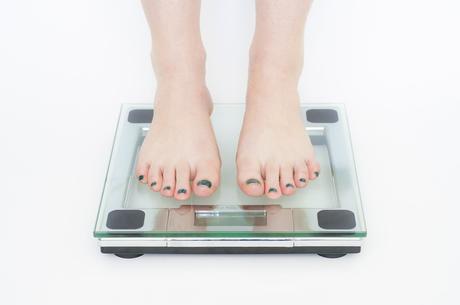
It’s not what you think.
I have anorexia. My first instinct was to at least shield you, random stranger on the Internet, from that truth, to ease you in. But there’s no way to put that gently. That’s not my reality. My reality is that I have been living with this mental illness since I was 14 and in my freshman year of high school.
Contrary to popular belief, this eating disorder isn’t just a “phase” or something that will go away once I “just eat.” Anorexia is not a choice nor is it directly or solely caused by images of excessively thin models and actresses in the media. Eating disorders are crippling mental illnesses. They can be genetically inherited from your parents or relatives, just like one inherits blonde hair or brown eyes. They could stem from past experiences, like bullying, abuse, or other obsessions, like perfectionism or a fear of failure. But no matter the cause, no one is to blame for their mental illness, and understanding this has been crucial for me.
I am still not sure how my eating disorder started. After two plus years of therapy, you would think I’d have progressed towards understanding, but it’s not that simple. But I am well aware that anorexia has a mind of its own and particularly flares up when I’m overwhelmed with school work or extracurricular activities, and makes a two hour gym session seem like the perfect antidote to all my problems. I use my anorexia to gain a sense of control, as an anchor when everything around me feels like it’s falling apart. Maybe I failed that physics quiz, but at least I can control how many calories I eat.
Even on my best days, though, I know I still don’t see myself correctly. I can never trust my perception of my own body. I never know if I have truly gained weight or if my brain is just tricking me into seeing extra fat on my stomach. I constantly battled my mirror for years, standing naked before it, picking out my flaws and pulling at “fat” along my stomach and thighs. I have since given up and only quickly check my reflection, but the tendency is still there.
Being afraid of food is isolating. I’m still overcoming the loneliness and sadness of my eating disorder. I used to come home from school, wrap myself in a thick quilt, and sleep for two hours. I was rarely invited to social events in the thick of my disorder, because I was hardly good company. Hanging out with friends involves too much mental and physical strength when you’re starving.
But no matter how lonely I got, I still found it impossible to “just eat,” as so many told me to do. A huge part of recovering from any eating disorder — whether it’s anorexia, bulimia, binge eating disorder or any other — is the food itself. One arguably cannot recover from an eating disorder without repairing a broken relationship with food and eating. When you have anorexia, it’s hardly simple to “just eat.”
Even if you do make it to a point where it’s possible to eat, you can still feel miserable. Realizing that I finally had permission to eat was the most difficult part of my recovery. I was told that I was “too sick” to continue and that eating would feel restorative. But, at least at first, it felt like my world was crashing down. It’s hard to feel healthy when it also feels like your hard work was for nothing.
I then reached a point in my recovery where food and eating were still projects, but different ones — not to lose weight this time, but to gain it back and recover. When I was deemed “recovered,” though, I still didn’t feel like I deserved food. What was it’s purpose is if it didn’t serve a specific goal? At this point my body may have been healthy (or healthier), but my brain was not. To me, there was only black and white, “sick” and “recovering,” but my therapist reminded me that living in the monochromatic world of my eating disorder missed an entire rainbow called living.
If step one of recovery was gaining weight, therefore, step two was challenging my disorder. I remember one time in particular when I sat alone in a cafe, challenging myself to eat a blueberry muffin. The task brought me to tears, but instead of listening to my anorexia, I found the tiny, soft, rational voice that said gently, “One muffin will not make you fat. That muffin looks delicious. Just take one bite. It’s okay.” Eating that blueberry muffin took me about 20 minutes and I took frequent breaks, hyperventilating and crying. But as I took my last bite of blueberry muffin, I felt strong. I had just defied my eating disorder. I couldn’t explain to anyone why I was so happy, because telling someone that you are happy because you finally ate your first blueberry muffin in two years is not a normal thing to say. Instead I basked privately in my ability to challenge myself and disobey the disorder. That day, I felt strong — happy even.
But that’s not how I feel every day. I am now supposed to be the paragon of health and happiness, eating cookies and doing yoga, attempting to show the world how to really live and how much I’ve learned. But continuing on my path of recovery is far more difficult from that, and is also far from over. Throughout the past two years, though, I have learned how to be mentally and physically strong. Though I’m not ready now, maybe someday I can be if not an inspiration to people going through the hell that is an eating disorder, at least an empathetic pillar of support.

